External display with flutter / iOS part 1
TL;DR See modification in AppDelegate.swift and main.dart
Why am I looking into external display support for Flutter
My kids are practicing Abacus and Flash Anzan.
They already have an application for Flash Anzan to practice on their own but I thought of something different that I can implement with Flutter:
- Use external display to present questions/answers/score
- Use main display (phone/tablet) to select time, number of digit, …
- Multi-player mode where devices can be used to enter answers
After some research, I did not find something already working for Flutter with external display. This is a good opportunity to learn something !
Reading
I started by creating a simple flutter app with vscode and opened the ios project on Xcode. I read the following articles:
- Displaying Content on a Connected Screen from Apple documentation
- External Display Support on iOS by Geoff Hackworth
Create the application from template
First, I created the project:
flutter create --org io.github.oqu -i swift -a kotlin \
--description 'external display adventures' external_display
You can also get the source code from github
Running the app on iOS simulator with external display yields the following:
| iOS Screen | External display |
|---|---|
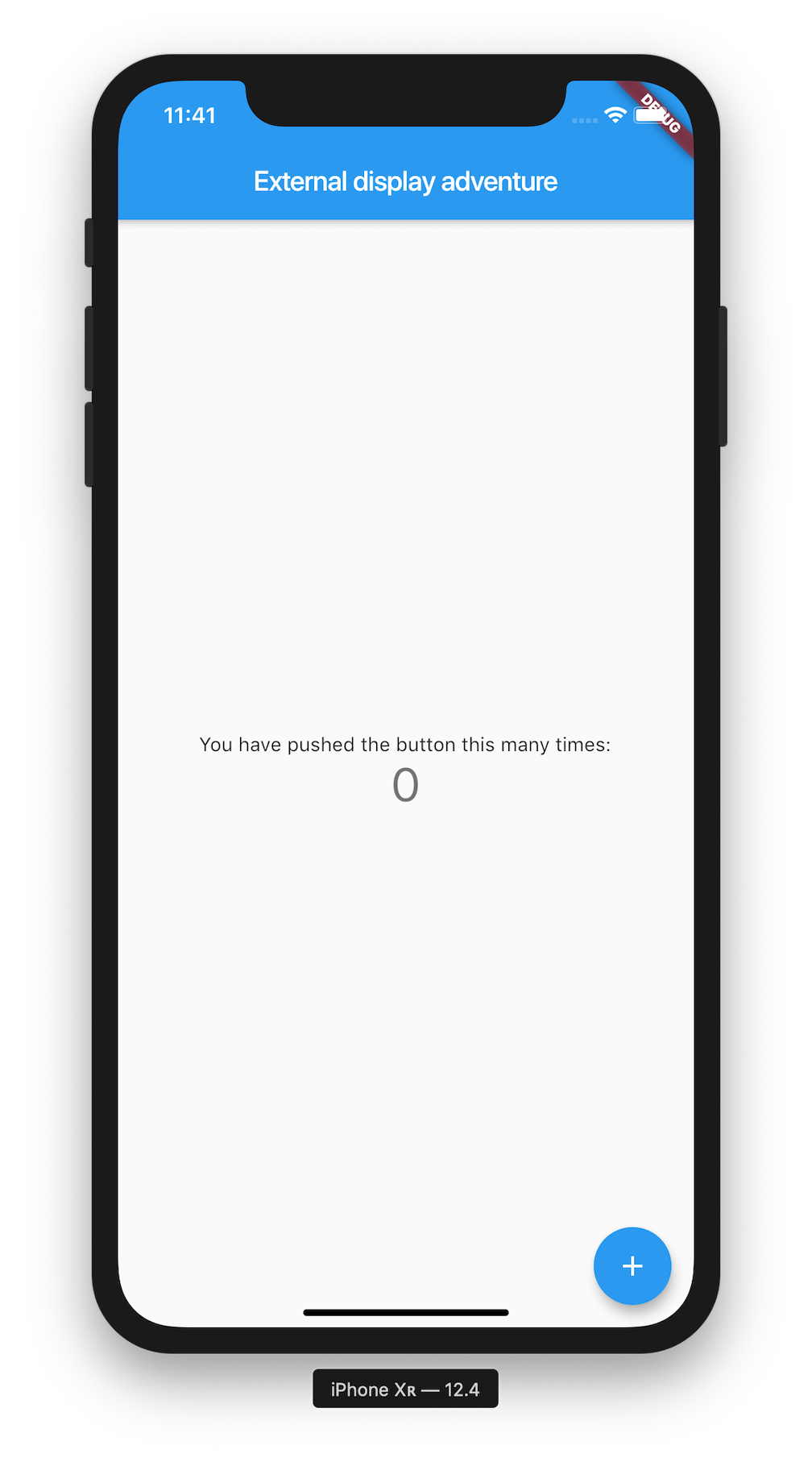 |
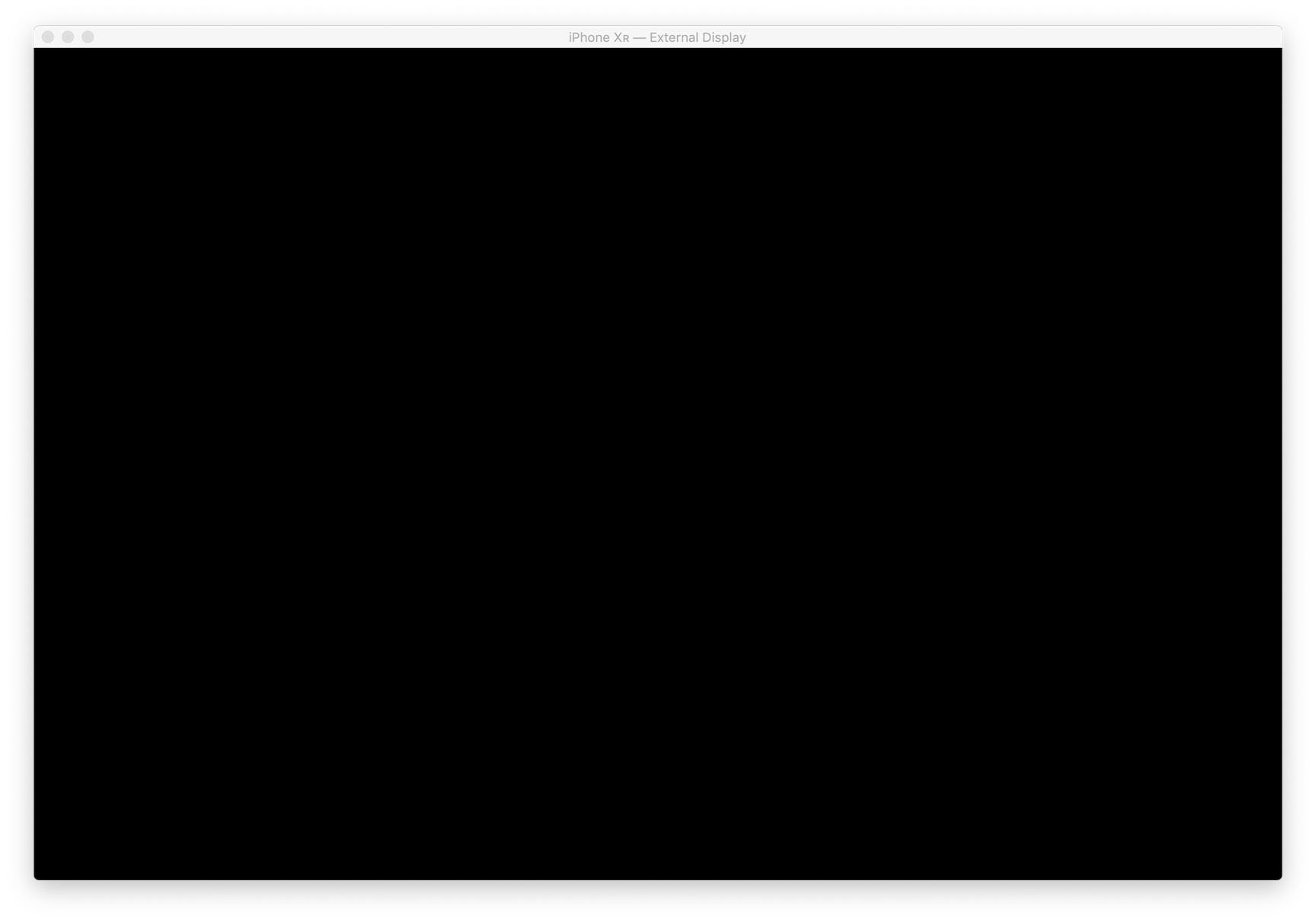 |
First attempt : failure
Following iOS development center documentation, I edited ios/Runner/AppDelegate.swift to add the required observers.
I created a ExternalDisplay class like so:
class ExternalDisplay {
var additionalWindows = [UIWindow]()
func setup() {
NotificationCenter.default.addObserver(forName: .UIScreenDidConnect,
object: nil, queue: nil) { notification in
// Get the new screen information.
let newScreen = notification.object as! UIScreen
let screenDimensions = newScreen.bounds
// Configure a window for the screen.
let newWindow = UIWindow(frame: screenDimensions)
newWindow.screen = newScreen
// You must show the window explicitly.
newWindow.isHidden = false
// Save a reference to the window in a local array.
self.additionalWindows.append(newWindow)
// Create a FlutterViewController.
// There was several constructor to pick from ...
let extVC = FlutterViewController()
newWindow.rootViewController = extVC
}
NotificationCenter.default.addObserver(forName:
.UIScreenDidDisconnect,
object: nil,
queue: nil) { notification in
let screen = notification.object as! UIScreen
// Remove the window associated with the screen.
for window in self.additionalWindows {
if window.screen == screen {
// Remove the window and its contents.
let index = self.additionalWindows.index(of: window)
self.additionalWindows.remove(at: index!)
}
}
}
}
}
When trying to create the flutter view controller, code completion showed

This is where I made the mistake to look into FlutterDartProject.
I end up trying to create a new FlutterDart project by modifying iOS project.
I tried to create a new bundle (similar to App.framework) by manually building another flutter project.
Success : display the same view
Using the simple constructor allowed to display the same view as the phone.
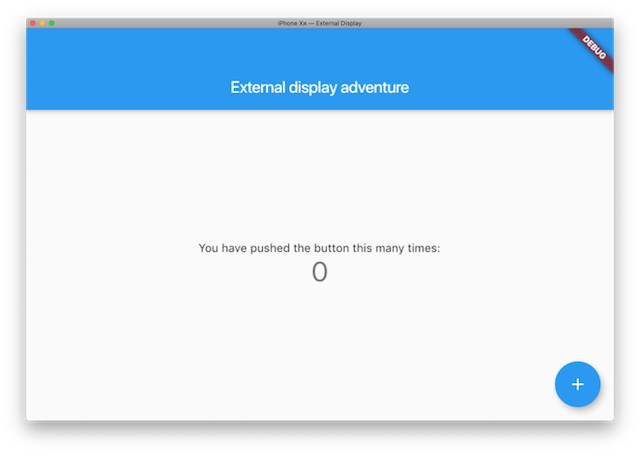
See github repo with tag P1-2 for full code.
Display a different view
Because the external display does not have input, I need to present a different view on the external display. This can be achieved by defining the initial route the flutter view controller should display
// modify the setup function to
func setup(route : String) {
// ...
let extVC = FlutterViewController()
extVC.setInitialRoute(route)
// ...
}
// Also, in AppDelegate, define a route:
extDisplay.setup(route:"/external")
Main application in dart needs to define a widget to display for this route:
class ExternalDisplay extends StatefulWidget {
@override
_ExternalDisplayState createState() => _ExternalDisplayState();
}
class _ExternalDisplayState extends State<ExternalDisplay> {
int counter = 0;
@override
Widget build(BuildContext context) {
return Scaffold(
body: Container(child: Center(child: Text("External counter: $counter"),),),);
}
}
// Modify the main app to handle /external route
home: MyHomePage(title: 'External display adventure'),
routes: {
"/external" : (context) => ExternalDisplay(),
},
See full code at github repo with tag P1-2.
This is what the external display looks like with this simple widget.
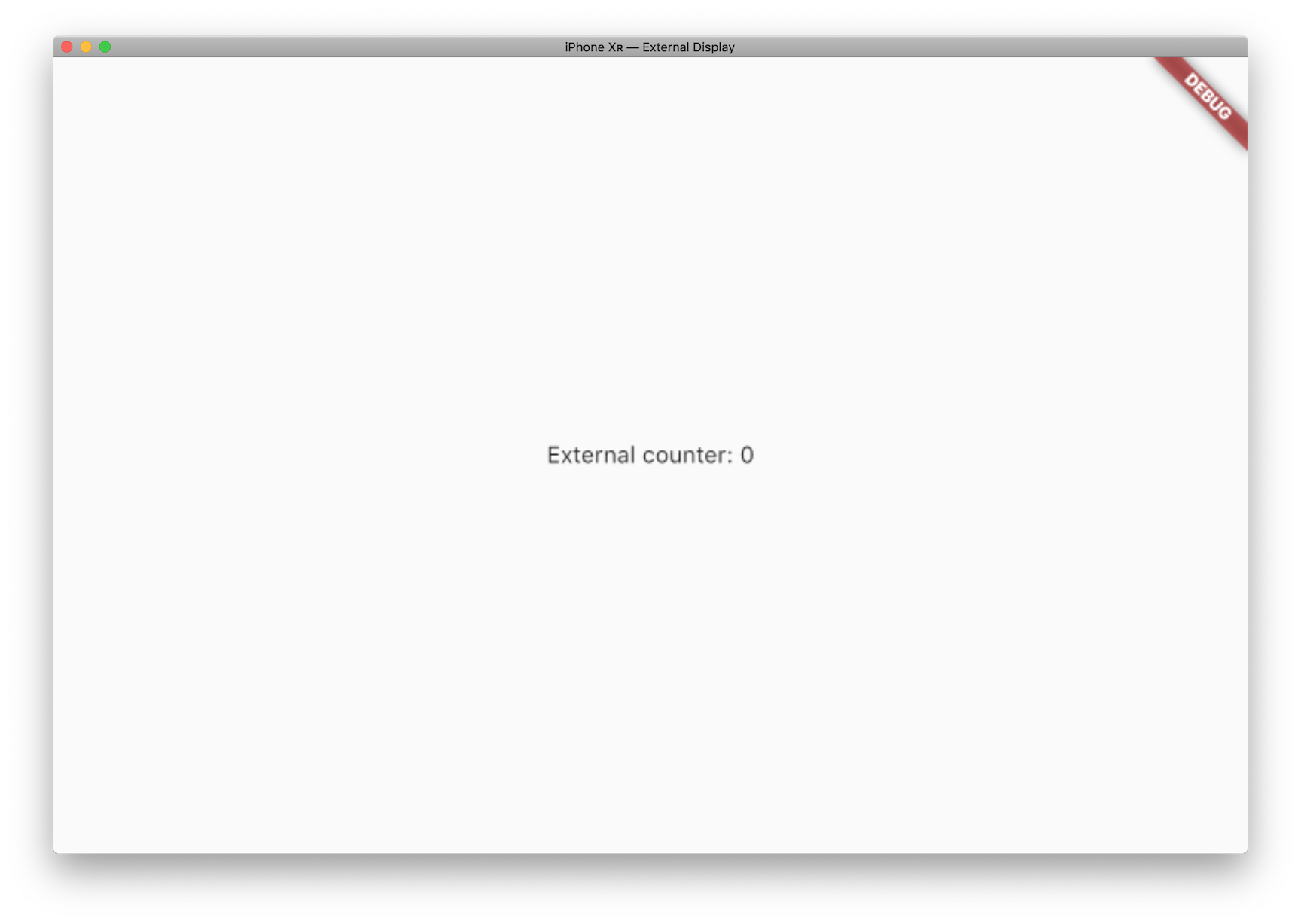
Modify External content display from main screen
I want to modify the value of the counter of the external display.
How do I do that ?
Looking at dart observatory:
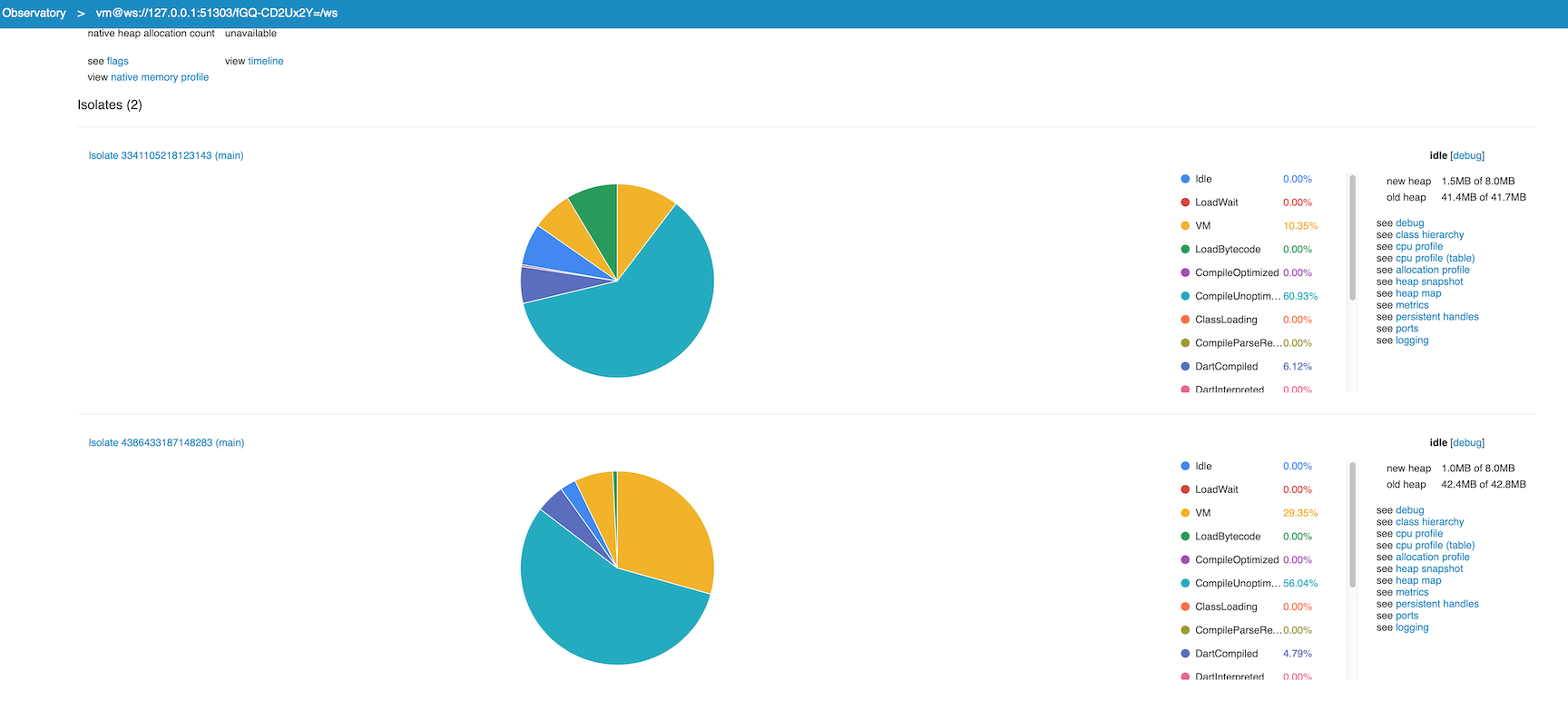
There is 2 isolates. One for the main screen and one for the external display.
How can we exchange information or event ?
- Web services
- Platform channel
Lets try platform channels !
Dart code
When the user press the FAB, we want to send an event to the external display
// First import flutter services to access PlatformChannel
import 'package:flutter/services.dart';
// Define the name of the function to be used by both MyApp and ExternalDisplay
const MethodSetCounter = "setCounter";
// Modify _MyHomePageState to call a function to set the counter value
static const platform = const MethodChannel('io.github.oqu/externalA');
void _incrementCounter() {
platform.invokeMethod(MethodSetCounter,[_counter + 1]);
setState(() {
_counter++;
});
}
// Modify _ExternalDisplayState to add the handler
@override
void didChangeDependencies() {
super.didChangeDependencies();
platform.setMethodCallHandler((message) async {
if (message.method == MethodSetCounter) {
var c = getFirstInteger(message.arguments);
if (c != null) {
setState(() {
counter = c;
});
}
}
return "ok";
});
}
// Type checking to retrieve the first argument as integer
int getFirstInteger(dynamic args) {
if (args is! List<dynamic>) {
return null;
}
var ld = args as List<dynamic>;
if (ld.length > 0) {
if (ld[0] is int) {
return (ld[0] as int);
}
}
return null;
}
Swift code
AppDelegate needs to be modified to routes method call to all external displays.
// Modify setup function to add the main flutter view controller as argument :
func setup(route: String, mainFvc: FlutterViewController) {
// ...
let counterChannel = FlutterMethodChannel(name: "io.github.oqu/externalA", binaryMessenger: mainFvc.binaryMessenger)
counterChannel.setMethodCallHandler {
(call: FlutterMethodCall, _: @escaping FlutterResult) -> Void in
// Dispatch event to all external displays
for window in self.additionalWindows {
let fvc = window.rootViewController as! FlutterViewController
// fvc.invokeMethod()
let c = FlutterMethodChannel(name: "io.github.oqu/externalB", binaryMessenger: fvc.binaryMessenger)
c.invokeMethod(call.method, arguments: call.arguments)
}
}
}
// Modify the way it is initialized
let controller: FlutterViewController = window?.rootViewController as! FlutterViewController
extDisplay.setup(route: "/external", mainFvc: controller)
The two screens are now in sync !
| iOS Screen | External display |
|---|---|
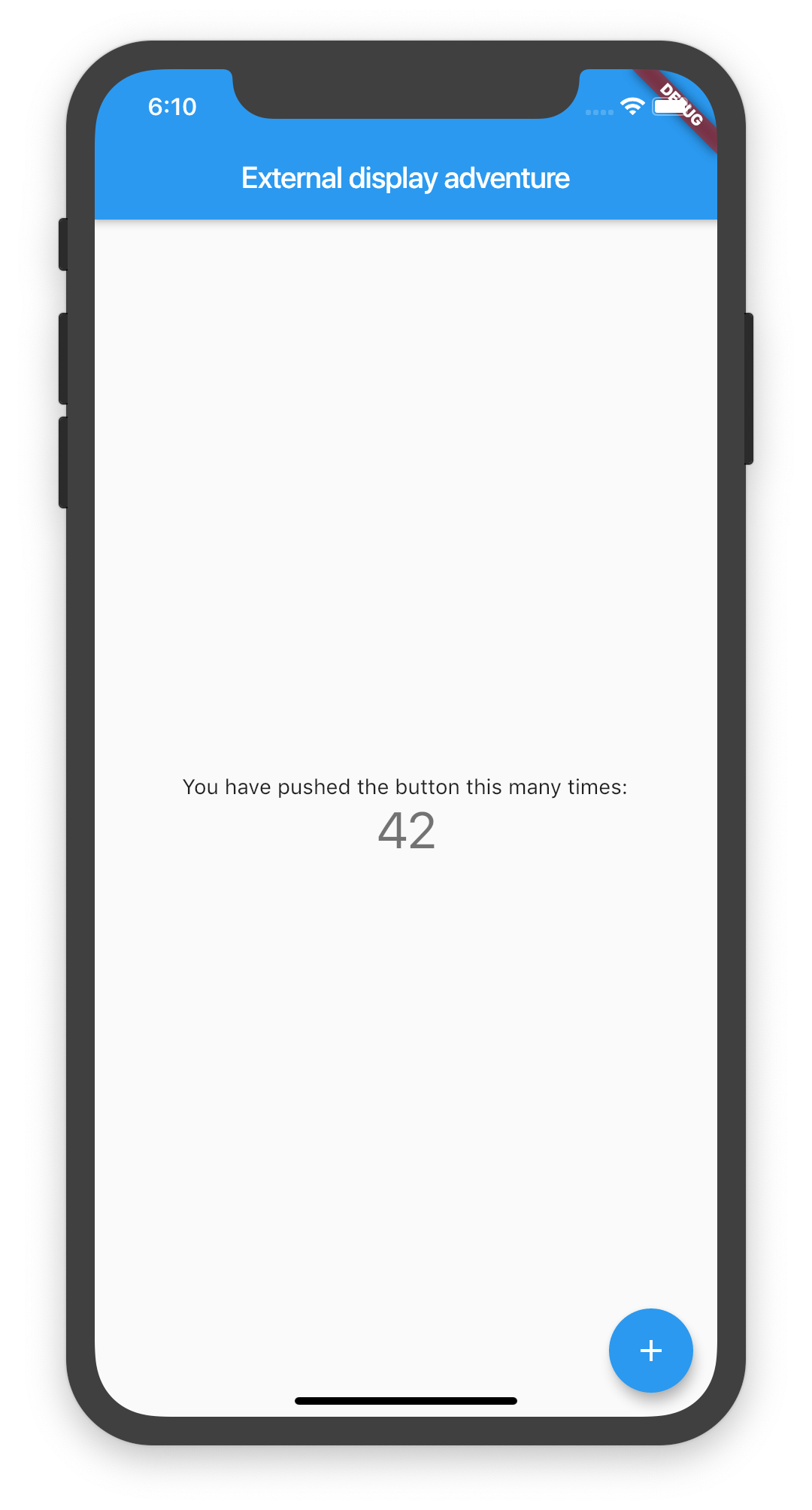 |
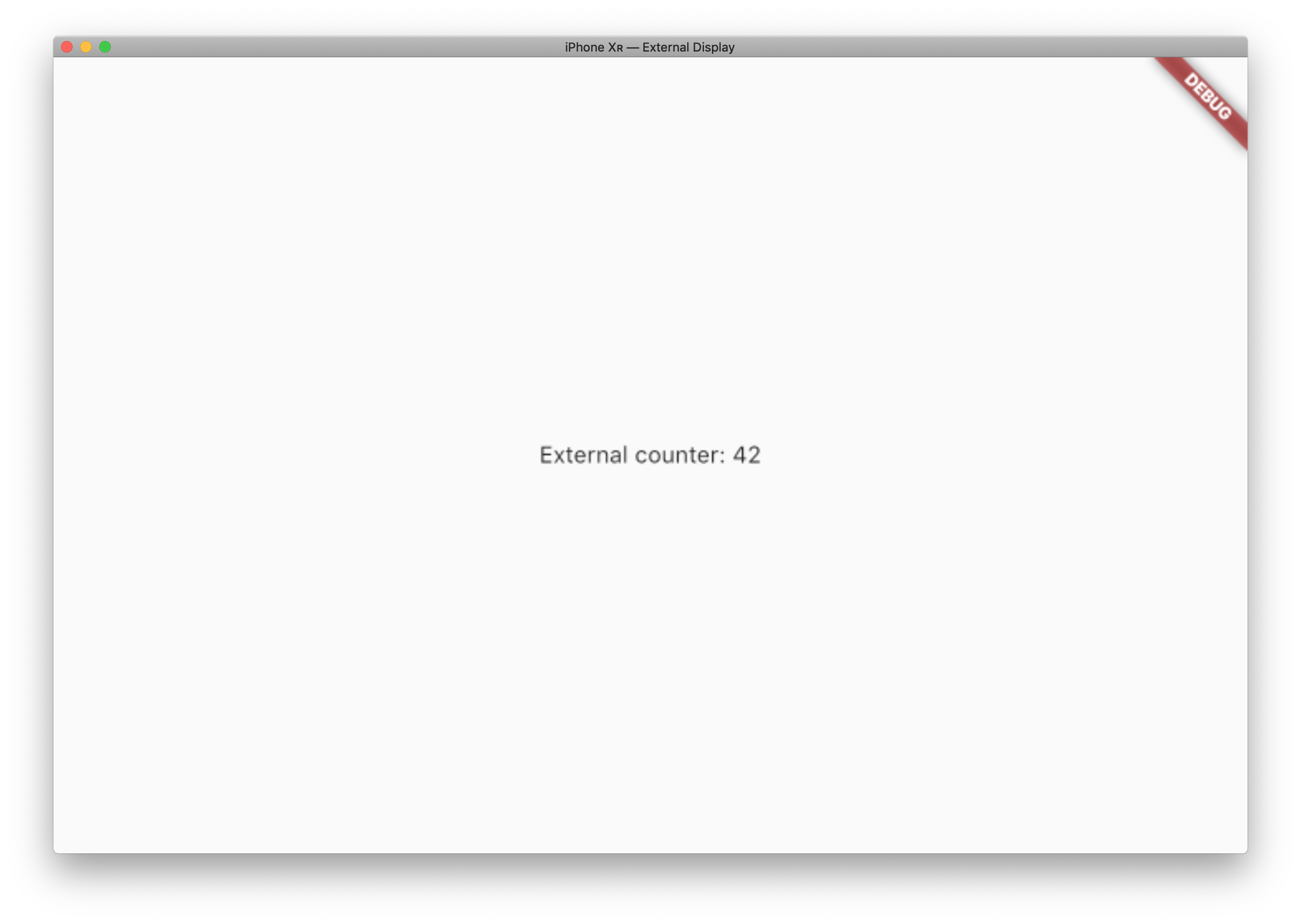 |
Thanks for reading.